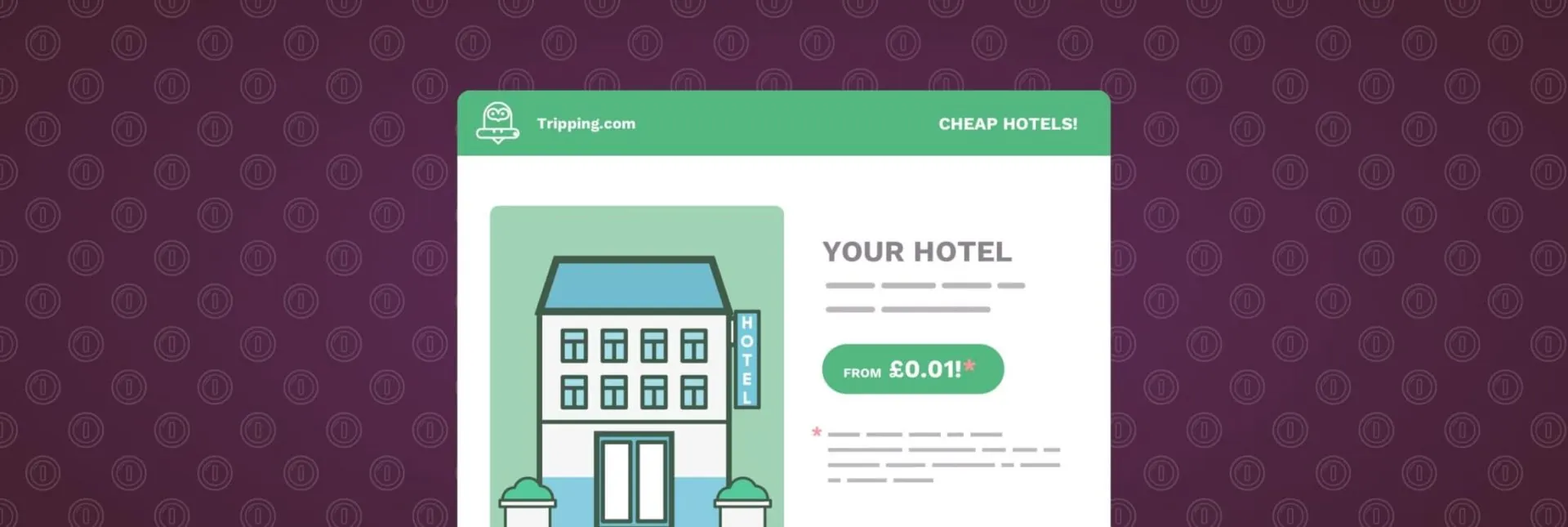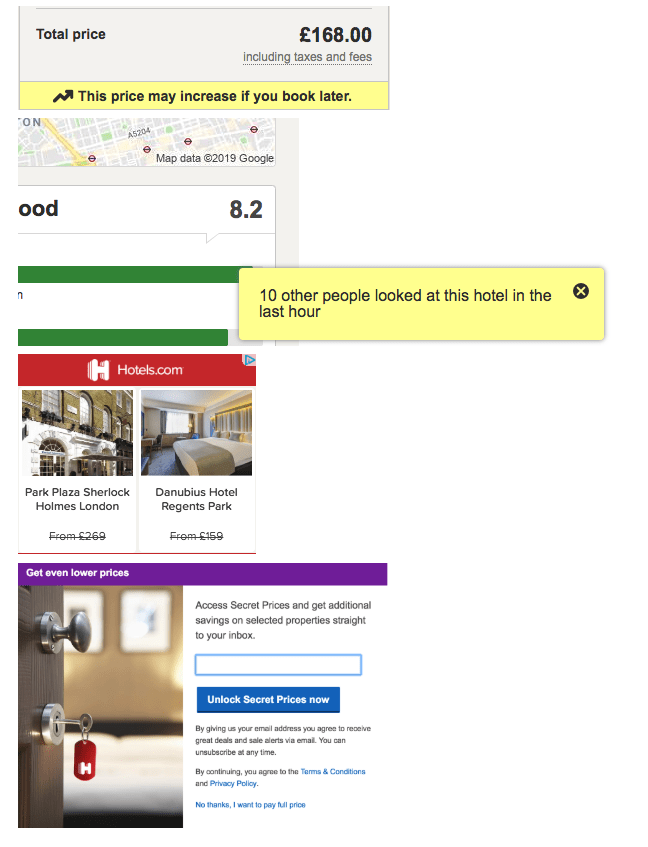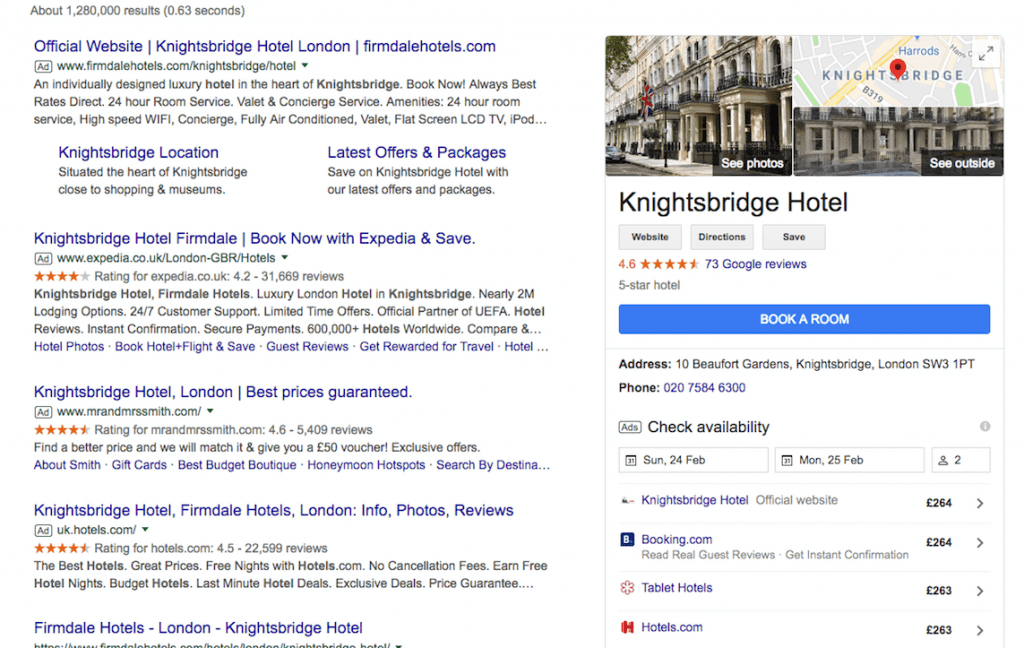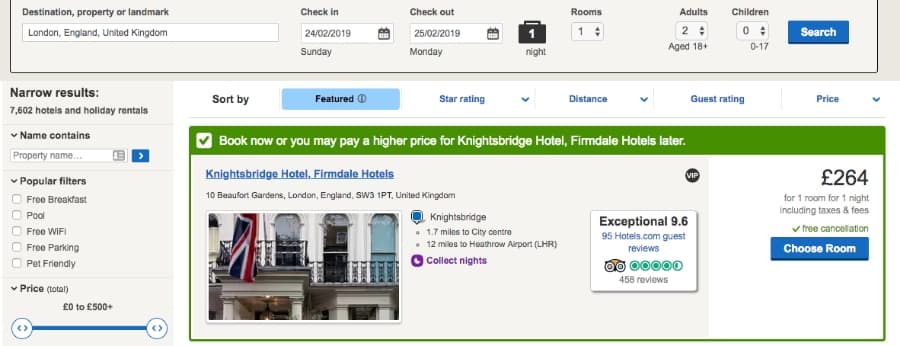Hotels make their rooms available through OTAs (i.e. Booking.com, Hotels.com) to drive bookings or to supplement any direct bookings generated. Hotels need to trust OTAs to operate fairly. By this, hotels advertising their rooms elsewhere need to trust these platforms, hoping that they won’t break room rate parity, mislead consumers, or even bid on a Hotels own trademarked hotel name through Google Ads (PPC). As OTAs are fully aware that hotels can be overly reliant, or in some instances even fully dependent upon selling their rooms through their sites, they take full advantage, and often unfairly.
The article recently published by the BBC about the OTAs misleading prices isn’t the first time OTAs have been warned about their conduct. The BBC alone has published about this multiple times before, way back in 2006, then in 2017 and 2018. Signs are still clear that the OTAs haven’t heeded the warnings, but (as the latest article indicates) they have until September 19 to comply or face court action.
Many of us, (myself included) have used the likes of Booking.com, Expedia.co.uk, Hotels.co.uk over the years to book trips away, perhaps at the expense of missing out on a better deal direct with the hotel.
Why do consumers use OTAs?
There are a number of reasons why many of us would choose to book our breaks through an online travel agent. Some of these reasons are cited below:
- Guests are not necessarily brand loyal to one hotel – willing to browse multiple hotels
- The OTA appeared first at the top of Google – for the hotel you searched
- Discounted offer on a stay – offer ends soon!
- Our personal/account details are already stored safely and securely – speed and ease of checkout
For those of us looking for a breakaway, we are often bombarded by messages to push us over the line to encourage us to make our booking, such as the following:
- Price hikes if you don’t book now
- One last room available!
- Hotel in demand – others are looking
- Remarketing – perhaps forward you an email with a final offer to book, or display an ad of the hotel elsewhere after leaving the OTA site to entice you back to make the booking.
*Some examples of the messaging used by OTAs to incentivise a booking
Essentially, there’s nothing wrong with any organisation looking to retain engagement. In fact, some of the marketing executed by OTAs is extremely effective, if not misleading consumers in their messaging or pricing. When inputting my email address to ‘unlock secret prices now’, I received no further discount.
How much of what OTAs list should we believe?
Naturally, OTAs will do their utmost to secure custom and bookings and use some very smart marketing approaches to reach their audience to secure bookings. They can play an invaluable role for many hotels looking to secure additional bookings, however OTAs do need to operate on a fair playing field, and need to market legitimately, abiding by regulations in place.
As evident through the articles published by the BBC (and multiple other publications) around the OTAs misleading consumers, maybe we should all err on the side of caution when booking our breaks away with any website other than the hotel direct.
The hospitality industry works very differently from other sectors. Where hotels need to look towards OTAs to advertise their rooms, they are also (or should be) a hotel’s key competition. This is as OTAs can take approximately 20% commission away from the value of a room night sold for any hotel. This effectively takes away the full room rate revenue away from the hotel if the hotel was to sell the room direct.
The OTAs dominate the market, so my hotel is dependent upon them?
FALSE. It certainly doesn’t have to be that way. Whilst it is true that online travel agents do continue to dominate the travel industry (supported by huge advertising budgets); it isn’t true that hotels are powerless to compete. OTAs are needed by hotels, but to what extent? With the OTA brands being much maligned by marketing unfairly and incorrectly to consumers, hotels should look to capitalise by taking advantage of winning over consumer trust, guest loyalty and retention.
As indicated below, our client – the Firmdale property ‘Knightsbridge Hotel’ not only appears first in Google organically; but their “direct rate” rate is available both through Google Ads (PPC) and Meta Search. A great approach taken to protecting their brand and encouraging direct bookings.
Notice, however, the battle the hotels face with putting their direct rate up against the online travel agents. Hotels.com, for example, have the rate between 24th-25th Feb as £263. Even a discount of as little as £1 can be enough to take the booking away from Knightsbridge Hotel.
Hotels.com listing at £263 for this date range, however upon clicking through on the ad within Meta for Hotels.com, I see £264 upon landing to their website.
Hang on, wasn’t this £263 a moment ago as Hotels.com indicated on Google? Oh well, I’m already on the Hotels.com website and it’s logged me straight into my account, so do I want to inconvenience myself by having to return if all the other rates were £264 anyway; or should I just book now as it’s all taken care of? Herein lies the issue with OTAs not currently playing a fair game, by trying to grab custom through advertising false rates to get people to land to, then book through their respective sites.
Our top tips for guests looking to book a hotel stay?
Since working in the hospitality marketing space, I now pay much closer attention to the rates hotels are advertised at and do much more research than ever before when booking my own vacation. Through the experience of speaking to my own clients, I understand the efforts Hotels will go to, to secure a direct booking – beyond what a guest typically expects as standard, i.e free Wi-Fi. Whether it be a bottle of wine upon arrival, complimentary upgrade; it can be hugely rewarding to book direct.
Traditional hotel websites were once a reference point for guests looking to view the image gallery and to gain perspective and seek reassurance on where they were considering booking through an online travel agent. Hotel websites nowadays are far more intuitive and sophisticated platforms than the traditional brochure type website you may be used to.
Have you seen what appears to be a better rate elsewhere? Our top advice for consumers would be for any guest seeing a rate through an OTA site to contact the hotel direct with that rate you have seen, then ask if they can better it or any incentive to you if you book direct with the hotel. You may be pleasantly surprised!
Our top tips for hotels to improve their “book direct” propositions
Hotels shouldn’t be waiting until the deadline of Sept 19 for the Competition and Markets Authority (CMA) to assess whether OTAs are becoming more genuine in their approaches and playing fair.
Should hotels be wholly dependent or reliant upon OTAs to drive revenue? There is every opportunity for hotels in the immediate term to improve their own offerings and to improve chances of generating direct room revenue.
Is your hotel’s website working hard enough to deliver upon the expectations of potential guests? Some top level tips:
- Is your Hotel website well designed and responsive for mobile devices?
- Does your hotel website have an internet booking engine (IBE)?
- Is your website HTTPs and does it reassure guests that their personal/payment details are safely stored?
- Does your website offer a smooth user flow – is it easy for guests to book?
- Do you have incentives for guests to book direct with your hotel?
For our clients at UP, they have experienced a significant reduction in the amount of money being paid out in commission to OTAs through securing direct room revenue at a lower cost per acquisition (CPA). If only through simple advertising to protect their hotel brand through Google.
The success of hotels driving people directly to their own sites can be immensely rewarding. Your hotel may be surprised at how much outlay through commission to an OTA can be saved. How much marketing is your hotel undertaking and on what platforms? Do you understand what your website is generating in terms of revenue?
Our team at UP work with over 40 hotels across the UK, wider Europe and America to boost their online propositions and to generate direct bookings.
Enquire today to see how our team can support your efforts.






